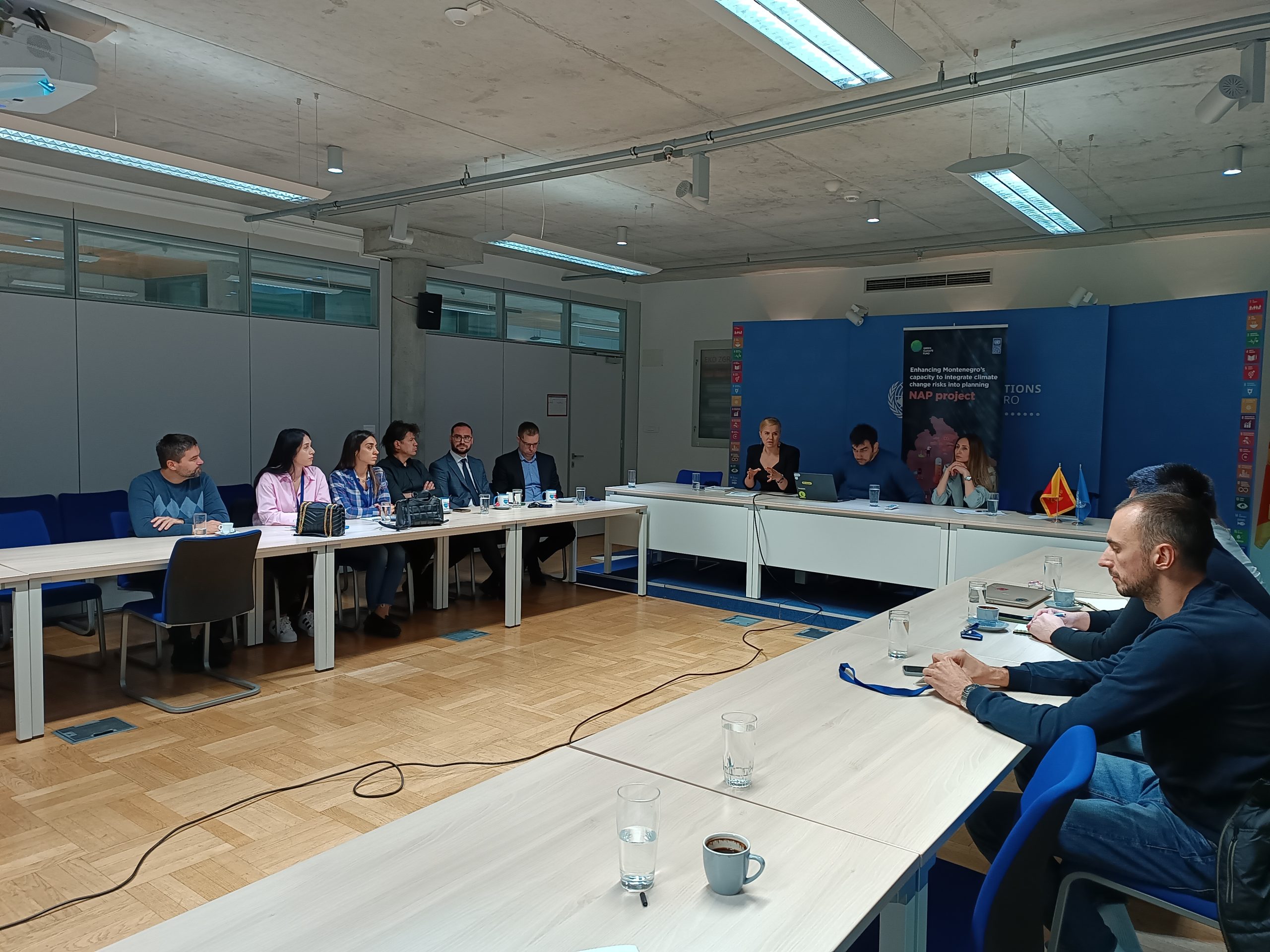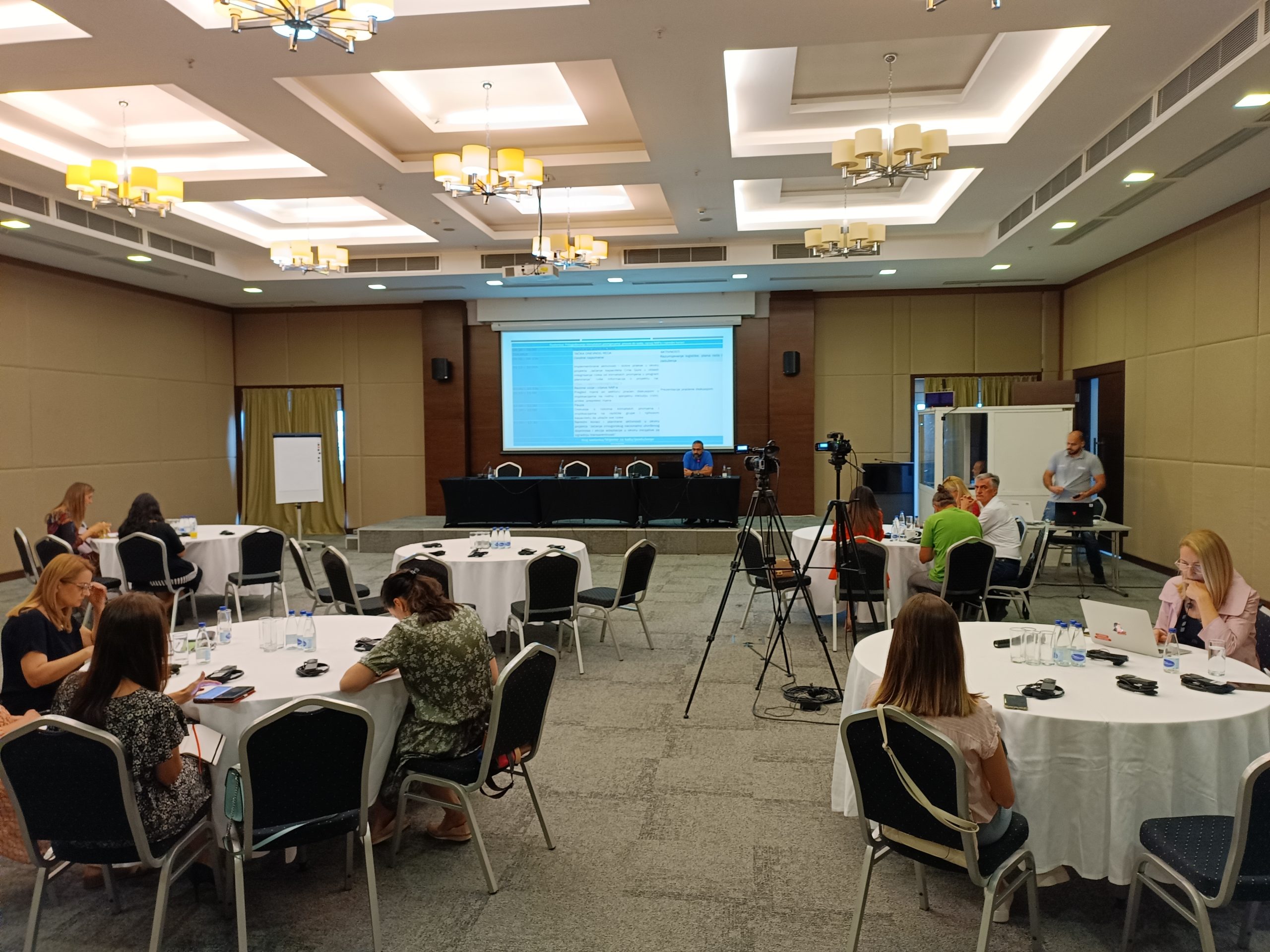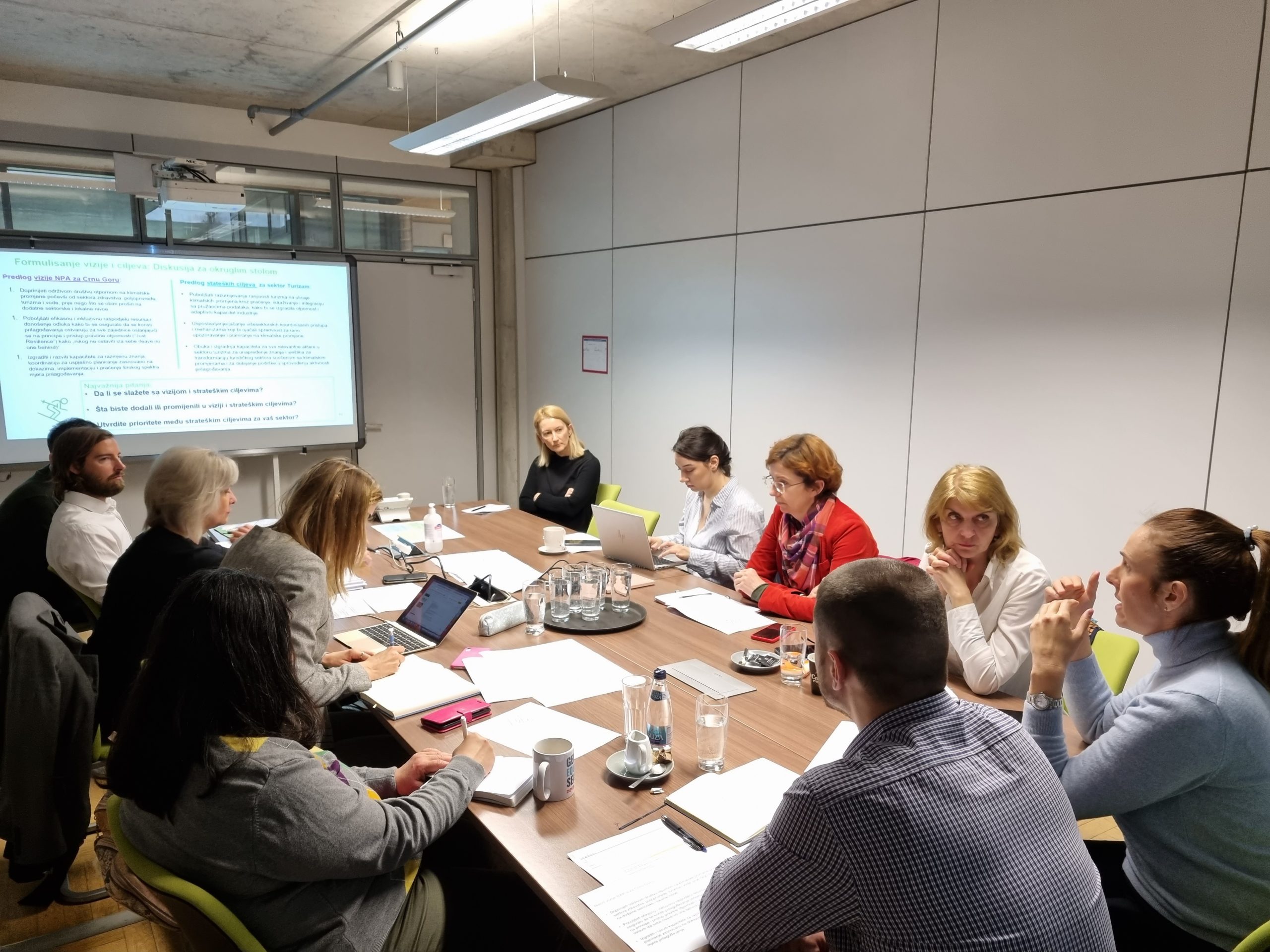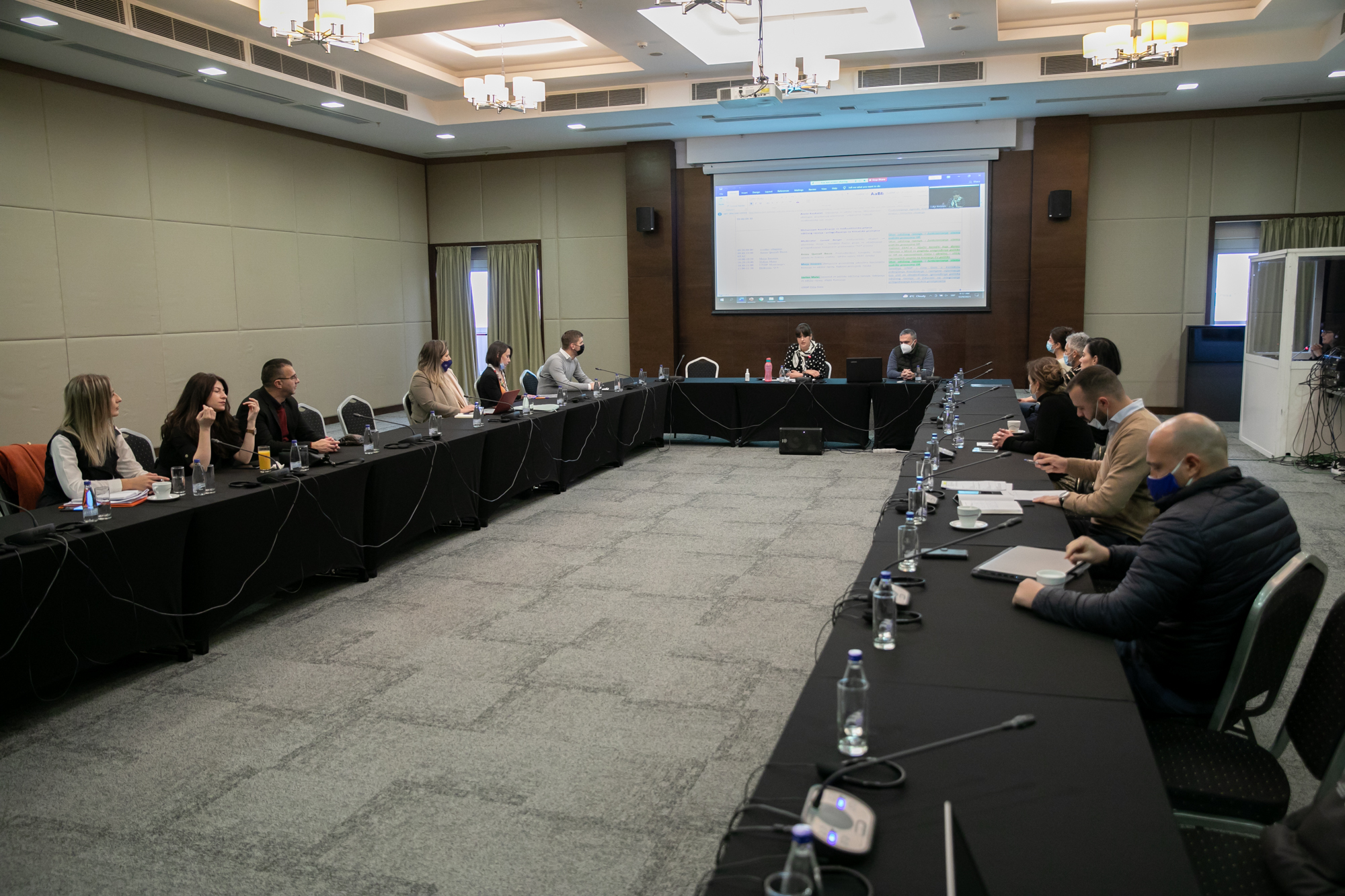The Ministry of Ecology, Spatial Planning and Urbanism (MEPPU) and the United Nations Development Program (UNDP) organized a workshop in Podgorica on 20 October 2021, within the preparation of the Third Biennial Updated Report of Montenegro on Climate Change, which is supported by the NAP project. The workshop focused on the civil sector in Montenegro, and the role of non-governmental organizations in the dialogue on gender issues and climate change was discussed within the main topic of the event, which was “Gender Aspects of Climate Change”.
The effects of climate change are numerous and the need for greater participation of NGOs in dialogue expansion, involvement of different stakeholders and raising public awareness about gender aspects of climate change has been identified. Non-governmental organizations play an important role in ensuring that policy making and implementation include gender-just solutions based on the needs and participation of all social groups, especially women. NGOs are also important in ensuring that everyone has an equal share in the distribution of benefits arising from climate change policies, whether it is information dissemination, capacity building, economic benefits, etc.
There are several ways in which civil society organizations can support this process: through collection, analysis and dissemination of information on environmental challenges, as well as on specific vulnerabilities of different social groups; implementation of climate actions; by raising awareness of the local population and mobilizing individuals and social groups to participate in decision-making processes and fair distribution of benefits; but also through gender-responsive monitoring of the climate action implementation process, learning, exchange of best practices, etc.
Greater civic engagement and participation of stakeholders involved in environmental protection will help improve the quality and effectiveness of national policies and ensure that environmental issues are addressed concurrently with economic problems.
Recording of the workshop could be found HERE.
 Back to previous page
Back to previous page











